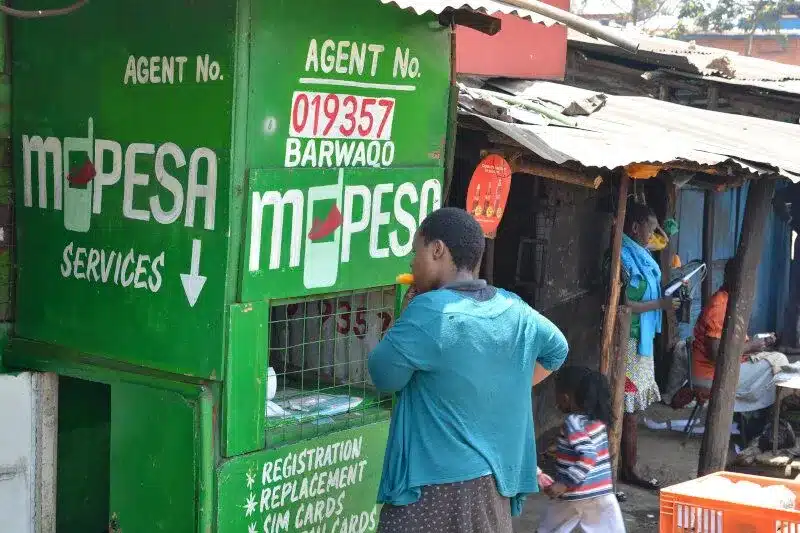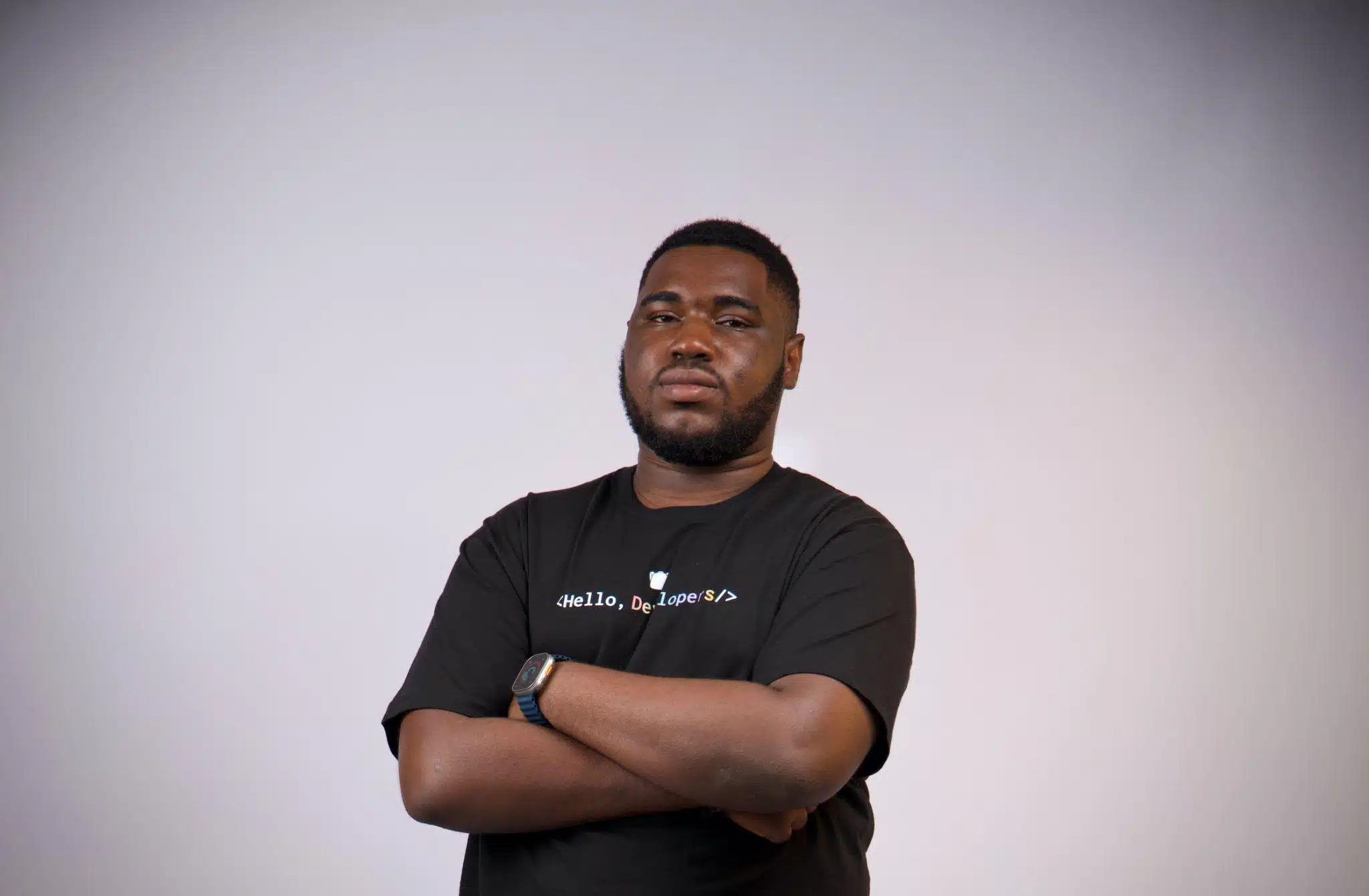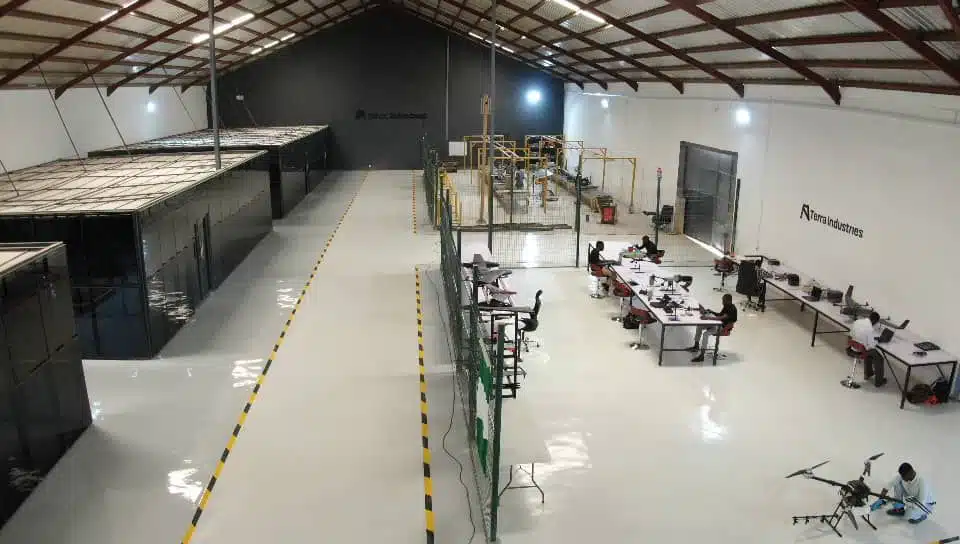Zdravstvuyte,
Victoria from Techpoint here,
Here’s what I’ve got for you today:
- Telcos, banks to charge USSD fees from airtime
- Netflix hits play on $10.5 billion payday
- MultiChoice Uganda launches weekly subscription plan for DStv and GOtv users
Telcos, banks to charge USSD fees from airtime

Very soon, you might start paying directly from your airtime just to purchase airtime or data using Unstructured Supplementary Service Data (USSD.) Yeah, that familiar *894# service may soon come with a different kind of deduction.
According to The Guardian, banks and telecom operators are finalising plans to switch to end-user billing for USSD, meaning subscribers, not banks, will foot the bill for each session.
End-user billing basically means you’ll be charged directly from your airtime balance anytime you use USSD, instead of the bank silently footing the backend cost and then charging you separately.
So, instead of seeing a debit alert from your bank, your airtime gets slashed even before your transaction goes through. It’s a shift from the old model where telcos billed the banks, a model that has caused serious debt issues over the years.
The telecoms say this move could finally solve the USSD debt crisis, which hit ₦160 billion as of late 2024. Per the Chairman of the Association of Licensed Telecoms Operators of Nigeria (ALTON), Gbenga Adebayo, talks are already in motion and both sides are working on a smooth transition that won’t affect subscribers. “This is what the banks have wanted for a while,” he said, adding that the goal is to stop further debts from piling up.
This move isn’t exactly new, it’s been on the table since 2019. Back then, banks kicked against sharing USSD revenue with telcos, especially after telcos proposed a cut of ₦4.50 per 20 seconds. Banks claimed this would drive up the cost by 450% and that pushback delayed everything. The fallout led to years of back-and-forth, leaving the debt issue to fester.

Victoria Fakiya – Senior Writer
Techpoint Digest
Stop struggling to find your tech career path
Discover in-demand tech skills and build a standout portfolio in this FREE 5-day email course
Currently, subscribers pay ₦6.98 for each USSD transaction — a fee introduced in 2021 — but even that hasn’t resolved the debt problem. Some banks were even cut off from USSD services earlier this year after failing to settle outstanding payments. Now, with regulators stepping in, telcos have managed to recover a good chunk of the money owed, but not all banks have complied yet.
To wrap things up, the Central Bank of Nigeria and the Nigerian Communications Commission have told both sides to agree on repayment terms, either in bulk or in installments, by July 2, 2025. For pre-API invoices, 60% must be paid as final settlement.
So, while you might soon be losing airtime for that *737# transfer, behind the scenes, the industry is trying to clean up a messy financial standoff that’s been going on for half a decade.
Netflix hits play on $10.5 billion payday

Have you watched Adolescence on Netflix? If you haven’t, no pressure, but you might be one of the few. The British short series is one of the standout titles behind Netflix’s strong first-quarter earnings in 2025, helping the platform pull in a whopping $10.5 billion in revenue. That’s a 13% jump from the same period last year, and the show’s global popularity definitely played a role.
Netflix also blew past Wall Street expectations. Its earnings per share climbed 25% to $6.61, while operating inc0me hit $3.3 billion, beating forecasts by $300 million. The company credits this solid performance to a mix of higher subscription prices and a strong global content lineup.
Interestingly, despite the noise around market instability and US political drama, Netflix says it hasn’t felt any major impact from President Donald Trump’s tariffs or the broader economy. “We’re paying close attention to consumer sentiment… there is nothing significant to note,” said co-CEO Greg Peters during an earnings call.
One major shift? Netflix is no longer sharing subscriber growth numbers, a stat it once pushed heavily. Instead, it wants investors to focus on financial indicators like pr0fit margins and revenue. The move comes after a record-breaking Q4 in 2024, when it added nearly 19 million subscribers, but expects slower growth this year.
To keep the money flowing, the streamer is betting big on ads. It’s pushing its ad-supported plans harder and experimenting with smarter ad tech in select markets, all in a bid to earn more from each subscriber, especially in places where competition is tight.
Meanwhile, Nigerian users have already felt the pinch. Netflix raised its Premium Plan from ₦5,000 to ₦7,000 in July 2024 — a 40% jump — just three months after another hike. The Standard Plan didn’t escape either, going from ₦4,000 to ₦5,500. It’s all part of Netflix’s play to boost revenue without relying too much on new sign-ups.
MultiChoice Uganda launches weekly subscription plan for DStv and GOtv users

On Friday, I went to see a friend, met some of his siblings, and bumped into another friend I already knew. After karaoke, we watched an episode of Black Mirror called Common People while having dinner. It was wild. A woman with a brain tumour could only stay alive through a $300/month subscription. Then they started running ads through her body like fre.e YouTube, and she had to upgrade just to avoid them and leave a certain zone. Meanwhile, she and her husband couldn’t even aff0rd the basic plan. It really hit.
Later, as we talked about how wild it would be to subscribe to live, my friend goes, “Honestly, everything’s becoming a subscription.” And no joke, the next day at a birthday party, someone introduced their startup, Laundry Boy, and yeah, it runs on a subscription too. Got me wondering: are we in a full-on subscription era now?
So imagine my surprise when I saw the news: MultiChoice Uganda has launched a weekly subscription plan for DStv and GOtv users. They’re calling it Ka Weekie, and for just UGX 5,000 (about $1.35), you can watch your favourite shows for seven days without committing to a full month. It’s perfect for people who earn weekly, students, or folks travelling for a short time.
But really, why a weekly plan? MultiChoice Uganda says it’s a response to how people actually live now: they want flexibility. According to their head of marketing, this plan gives users more control over how and when they pay while still getting access to their full channel bouquet. You can switch between weekly and monthly options, though new users have to start with a full month first.
Now, people in Nigeria are starting to ask, “Why can’t we get this too?” Especially since DStv and GOtv subscriptions in Nigeria have been going up again. In March 2025, the DStv Compact bouquet jumped from ₦15,700 to ₦19,000, a 21% hike. That’s on top of the usual economic stress, the weak naira, inflation, and high energy bills. A weekly option here would give people a breather.
So far, MultiChoice Nigeria hasn’t said much about actually launching this. But with platforms like Netflix and Showmax stepping up their game, maybe Ka Weekie could keep Nigerian viewers from jumping ship. And honestly, if we live in a world where even fictional characters need subscriptions to survive, is it too much to ask for more flexible TV plans for real people?
Still, it makes you wonder whether students or gig workers even need a weekly plan. I mean, do young people watch DStv or GOtv? I’d rather just stream Showmax than deal with pay-TV. Is it for you? I mean, why do you need a weekly subscription?
In case you missed them
- Twiga Foods acquires three FMCG distributors amid internal turmoil
- 30% black ownership: Vodacom backs Starlink ban in South Africa
What I’m watching
- The Happiness Expert: Single Friends Will Keep You Single & Obesity Is Contagious!
- For What REASON Did Judas Betray Jesus? – Bart Ehrman
Opportunities
- Want to exhibit or attend the Lagos Startup Expo in June? Visit this website here.
- BBC is looking for a Journalist with a focus on Africa. Apply here.
- Kuda is looking for technology interns. Apply here.
- TapTap Send is hiring an Anglo Africa Partner Operations Manager. Apply here.
- Binance is hiring a Local Growth Manager in Africa. Apply here.
- Pulse Nigeria is looking for a Graphics Designer. Apply here.
- Uber has opened applications for its 2025 Account Management internships. Apply here.
- Carry1st is looking for a Community Program Manager, North Africa. Apply here.
- Want to connect with professionals in tech sales and partnerships to exchange ideas and explore how revenue growth can scale Africa’s tech ecosystem? Join Tech Sales Connect 2025 on April 19th at Gomycode, Lagos. Register here.
Want to connect with professionals in tech sales and partnerships to exchange ideas and explore how revenue growth can scale Africa’s tech ecosystem? Join Tech Sales Connect 2025 on April 19th at Gomycode, Lagos. Register here.
- Building a startup can feel isolating, but with Equity Merchants CommunityConnect, you can network with fellow founders, experts, and investors, gaining valuable insights and exclusive resources to help you grow your business. Click here to join.
- Help us make Techpoint better for you! Your feedback shapes what comes next (your responses may potentially save my job. A bit dramatic, but still). It will only take 30 seconds to tell us what works and what doesn’t. Fill it here.
- To pitch your startup or product to a live audience, check out this link.
- Have any fresh products you’d like us to start selling? Check out this link here.
- Flutterwave is hiring to fill in several positions. Apply here.
- Paystack is hiring for several roles. Apply here.
- Moniepoint is hiring for several roles. Apply here.
- Follow Techpoint Africa’s WhatsApp channel to stay on top of the latest trends and news in the African tech space here.
Have a productive week!
Victoria Fakiya for Techpoint Africa.










